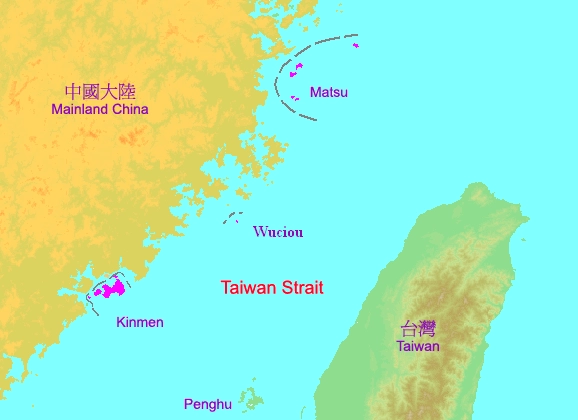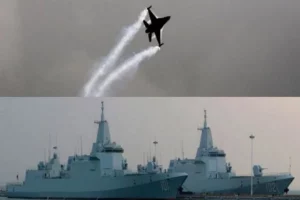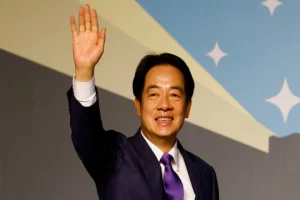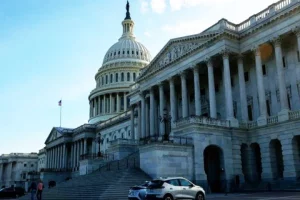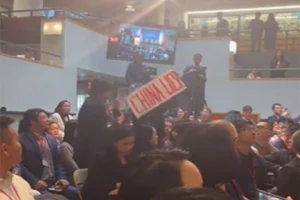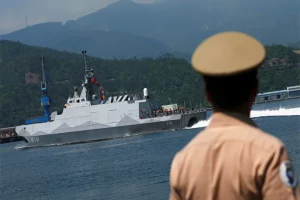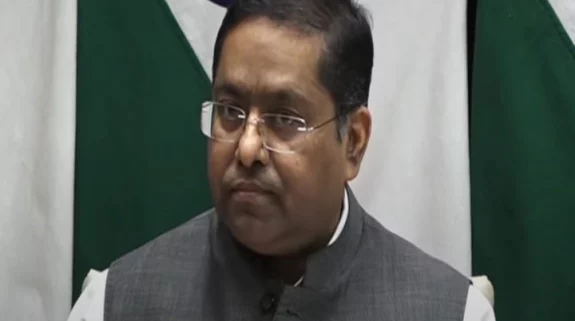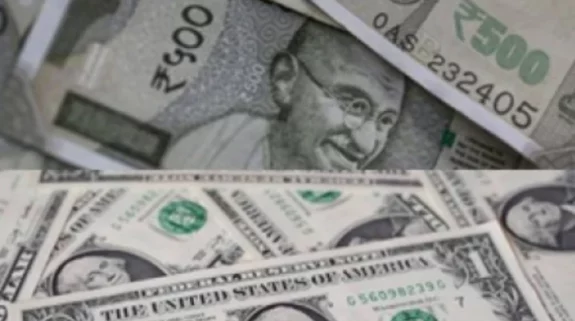Will he, won't he? As the world tries to unravel US President Joe Biden's seemingly contradictory statements over a possible US intervention in a seemingly possible conflict between China and Taiwan, the latter is buttressing its defences against a belligerent China.
With the Russia-Ukraine war still raging on after more than three months, Taiwan is apprehensive that an ambitious Xi Jinping, keen to slip his feet into Mao's larger-than-life shoes will invade the island under the One China Policy (OCP), and buttress his iron-man image just in time for his third re-election.
Touted to be the most important event of this decade, the Communist Party of China (CPC) is gearing up for its 20th National Congress to be held in Beijing in November this year with about 2,300 delegates representing 90 million members. Till now it is believed that Xi's election is a mere formality, unless something, somewhere goes drastically wrong for China.
An attack on Taiwan could make or mar Xi's election, depending on its outcome.
Meanwhile, the tiny island nation across the Taiwan Strait has launched itself into frenzied military drills and is furiously taking notes from Ukrainian defence tactics.
Residents of Taiwan's Matsu Islands now fear the Chinese planes buzzing across their skylines. They feel that if #Russia can invade into #Ukraine than the Chinese can also do the same with Taiwan.
Mohammad Saleh tells you more
For more videos, visit: https://t.co/AXC5qRcEPB pic.twitter.com/5LTte1GToO
— WION (@WIONews) March 26, 2022
If China indeed wages war, Taiwanese islands, which have witnessed war earlier in the fifties, will once again find themselves at the forefront. Defence Minister, Chiu Kuo-cheng has already briefed the Parliament that China is capable of attacking the outlying islands and the Taiping Island should be ready at all times.
Namrata Hasija, Research Associate at the Centre for China Analysis and Strategy (CCAS), told India Narrative that if ever China wants to capture Taiwan, it has to first capture the outlying islands and then blockade the waters to stop the US or Japan coming to Taiwan's aid.
Reciting previous instances, Hasija says: "In the first Taiwan Strait Crisis in 1955, China seized Yijiangshan Islands forcing Taiwan to abandon Tachen Islands. Then, during the Second Taiwan Strait Crisis in 1958, China shelled Kinmen and Matsu Islands but the US intervened and Taiwan could retain these islands. "So they are the first defence walls that China will break in case of a military attack".
The Kinmen islands lie barely two km from the Chinese mainland while they are nearly 180 kms from Taiwan's west coast. Hasija says: "People in the Kinmen Islands are in fact comfortable with China and are even looking forward to the construction of a bridge by China's United Front Work Department (UFWD). You have to understand that millions of people migrated from mainland China in 1949 so that generation still feels they are Chinese".
Today we remember all those who fought to defend Kinmen Island 70 years ago. Peace can never be achieved by compromising our beliefs nor by bending to others. We need strong national defense & a sense of solidarity to show the world we are determined to defend our sovereignty. pic.twitter.com/LyneAYVTbW
— 蔡英文 Tsai Ing-wen (@iingwen) October 23, 2019
The Matsu Islands, which is more of an archipelago consisting of dozens of islands, also lie close to China. Taiwan has placed tens of thousands of troops on the islands.
Though China has not attacked the two islands in decades, Taiwan kept making fortifications, air raid shelters and tunnels on the islands. Taiwan is believed to have placed anti-tank as well as anti-aircraft guns for the islands' defence. Lately, many of the tunnels and fortifications have begun to serve as tourist attractions and some have been converted into tea shops.
Recently, Taiwan alleged that the Chinese air force flew its aircraft close to the islands. Experts speculate that it could be China testing the waters for a Taiwanese or an American response.
A rocky outcrop some 3 km from China's coast on Taiwan-controlled Kinmen Island is the scene of memories for a group of veterans who recall its role as the front line between China and Taiwan at the height of the cold war. pic.twitter.com/tRA6ZlWI3e
— ANews (@anews) October 26, 2021
Hasija says: "Of course, China has been training for an attack. What it possibly needs are large amphibious assault ships and medium landing craft necessary for a large beach assault. We know that the PLA Navy is extremely strong. If the US does not intervene, it will be difficult for Taiwan to win, however, looking at Ukraine one cannot speculate what lies in store".
At the moment, the US and China have placed aircraft carriers in the waters around Taiwan. While China has been holding military drills around Taiwan and also in the Korean Peninsula, the US has mustered the support of the West and the Quadrilateral countries in response. Like a fretful Taiwan, Japan too has joined the US in strengthening its defences against China in the Indo-Pacific.
Even as the two nations test the resolve of the countries in the region, for the Taiwanese islands, it is a tense throwback to the fifties.
Interview: India should exercise leadership within the Quad of democracies
Has the Quad shifted focus from geopolitics to geo-economics and development?






